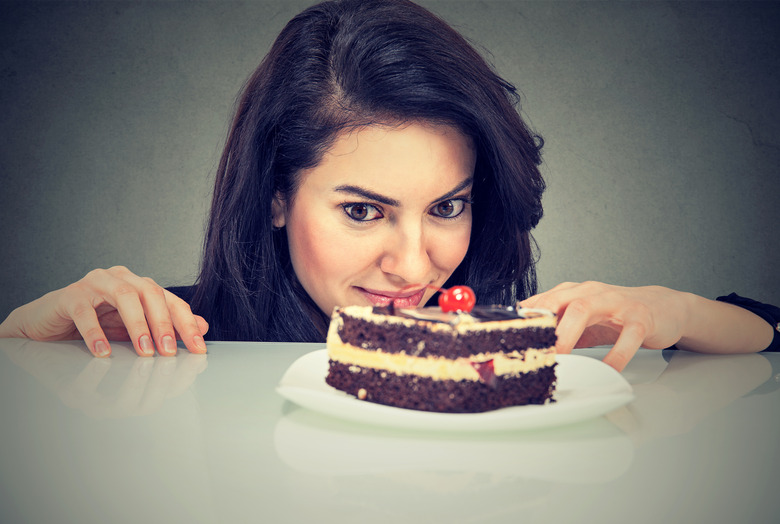Carb Cravings Are Your Brain's Fault, Study Finds
So you're a chronic stress-eater — especially when it comes to carbs. You're worried, you're anxious, your chest tightens, and you reach for a nearby bag of chips to mindlessly munch until the stress subsides. According to a new study from Japan, it's not your fault you stress-eat this way — your brain chemistry might be to blame.
Studies have shown that most of the time, people have a taste preference for high-fat foods — fried foods, ice cream, chocolate... You can probably relate. However, there are those times when the carb cravings kick in — when suddenly, a heaping portion of mac and cheese or potatoes sounds irresistible. Scientists have suspected that there's a mechanism that makes the switch in your brain from a preference for fats to an increased appetite for carbohydrates.
Until now, the exact mechanism responsible for these cravings has been a mystery. But these scientists believe it is tied to one specific type of neuron in the hypothalamus. When they activated these neurons in mice, the rodents' taste preferences veered away from high-fat foods and instead steered towards carbs.
The carb-craving neuron gets set off by a hormone released during times of stress, which could explain phenomena like stress eating and the appeal of comfort food. When you start to feel on edge, your brain triggers carb cravings as part of your stress response. Bring on the baked goods.
"Many people who eat sweets too much when stressed tend to blame themselves for being unable to control their impulses," Professor Yasuhiko Minokoshi, lead author of the study, told the Japan Times. However, the researchers want people to know that their lack of control around carbs isn't their fault.
It's wild how much stress can affect our appetites — we wonder if sleep plays a role, too. Lack of sleep has also been known to cause cravings, along with these 15 other disturbing things that can happen when you're sleep-deprived.
